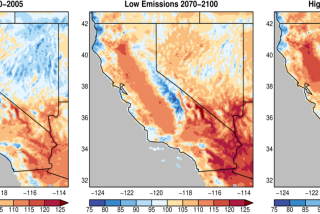Why the Rush to Settle?
- Share via
For some reason, the Bush Administration seems to be rushing to a non-judgment by allowing Exxon to plea bargain away its responsibility for last year’s 11-million-gallon Exxon Valdez oil spill. What’s the hurry? And why such secrecy about a possible deal that would be acceptable to the world’s biggest corporate entity but offensive to the people who suffered the most, the citizens of Alaska?
President Bush and Atty. Gen. Dick Thornburgh should tell the negotiators to slow down and include the state of Alaska in any arrangement that is struck to let Exxon off the hook of criminal prosecution for the spill that fouled--and still fouls--hundreds of miles of pristine wilderness coastline.
A draft settlement would require Exxon to establish a $500-million restoration fund in exchange for escaping criminal prosecution. The payoff sounds impressive. But the law permits the government to seek at least double the actual damages, which to date include Exxon’s $2-billion estimate of the Exxon Valdez cleanup, with more work to be done. Alaskan officials have a legitimate complaint: that Exxon would have considerable discretion over when and how the settlement money is spent. The funds could go to environmental mitigation projects elsewhere, not just Alaska.
Also, the Justice Department would agree not to bring any civil action for damages for at least four years. While this provision would not preclude Washington from suing after that, getting an equitable settlement or judgment might become increasingly difficult as time passes, memories fade and outrage cools. Further, Alaskan officials claim such a decision would leave them out on a limb: Going it alone against a giant corporation able to hire whole teams of lawyers would put the state at a decided disadvantage.
One can understand Washington’s desire to avoid a long trial against cadres of Exxon lawyers. Perhaps a suitable plea bargain can be struck. But there is no rush. Alaskans should be allowed to participate in any decision that has such a critical bearing on the recovery of their environment.
More to Read
Sign up for Essential California
The most important California stories and recommendations in your inbox every morning.
You may occasionally receive promotional content from the Los Angeles Times.










